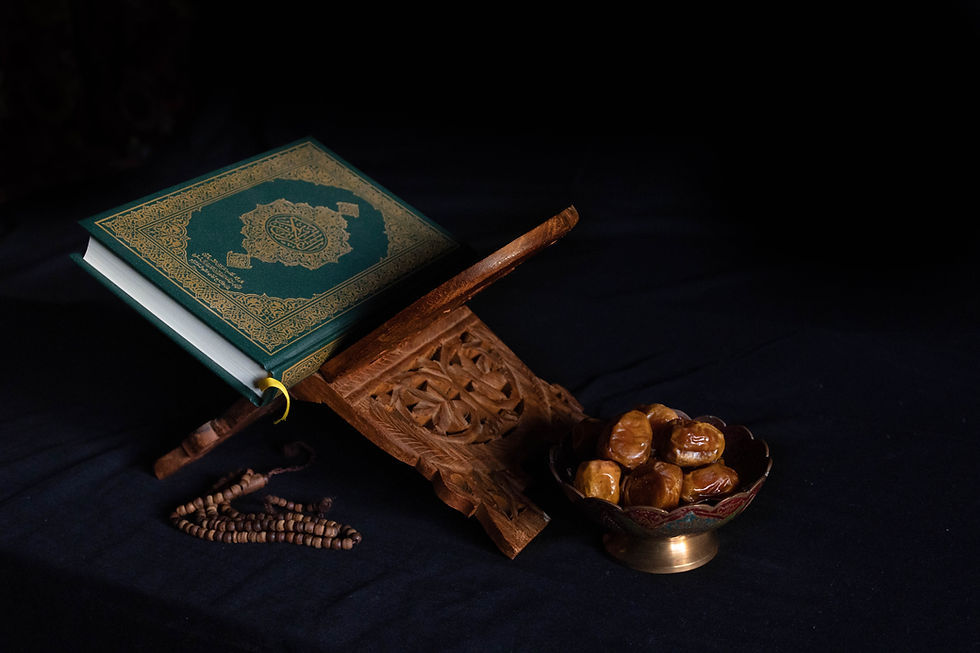Aisha bint Abi Bakr: Medieval Islamic Scholar
- Sylvia Rose

- Sep 9, 2024
- 4 min read
Aisha bint Abi Bakr (c. 613 – 678 AD) is a medieval Islamic woman, a royal daughter, and the wife of the Prophet Muhammed. One of the most significant figures in Islamic history, she is instrumental in the early development of the Muslim community.

The Life and Times of Aisha bint Abi Bakr
Born in approximately 613 AD in Mecca, she's the daughter of Abu Bakr, the first caliph of Islam, and Umm Ruman. Aisha is revered for her keen intellect, devotional commitment, and influential teachings. Her venture into scholarly pursuits is almost predestined.
Blessed with a desire for knowledge, Aisha emerges as a luminary of early Islam. She makes her place in the realm of scholarship, an inspiration for those who seek enlightenment. Her teachings transcend societal boundaries and stories of her wisdom are legendary.

Early Life and Marriage
Aisha grows up in a household deeply involved in the early Islamic movement. Her father, Abu Bakr, is a close companion of the Prophet Muhammad and one of the first converts to Islam. In this environment, Aisha is exposed to the teachings of Islam from an early age.
She develops keen understanding of its principles. In 620 AD, Aisha is married to the Prophet Muhammad when she's very young. The marriage gives her an integral role in the Prophet's personal and public life. She takes great interest in the events shaping early Islamic society.

Contributions to Islamic Scholarship
Aisha bint Abu Bakr is a devoted wife and avid scholar of Islamic teachings. She's known for her sharp intellect and recognized for extensive knowledge of the Quran and Hadith (sayings and actions of the Prophet).
Following the Prophet’s death in 632 AD, Aisha becomes an essential source of Islamic knowledge, transmitting numerous Hadiths to the early Muslim community. Her teachings encompass a wide range of topics, including Islamic law, ethics, and gender relations.

Aisha's contributions are particularly significant concerning the role of women in Islam. She advocates for women's rights, emphasizing a woman's responsibilities and roles in society, thus affecting the view of gender within Islam.
The Reverence and Mystery Surrounding Aisha bint Abi Bakr
Aisha bint Abi Bakr contributes significantly to the field of jurisprudence and has a strong influence on the teachings of Islam. In Sunni tradition, Aisha is depicted as learned, intelligent and curious.
She spreads Muhammad's teachings and spends 44 years serving the Muslim community after his passing. Aisha is renowned for transmitting 2,210 hadiths, not only concerning Muhammad's personal life but also on topics like inheritance, pilgrimage, and eschatology.

Narrations and Teachings
Many of her Hadiths are foundational to Islamic law and theology. Her narrations provide critical insight into the life of the Prophet Muhammad, offering perspectives on his character, ethical teachings, and interactions with his companions.
Aisha is a proponent of reason and critical thinking in interpreting the Quran and Hadith. She encourages her contemporaries to engage deeply with religious texts, advocating for an understanding transcending simple memorization.

One of her notable teachings is her insistence on knowledge and education, particularly for women. Seeking knowledge, Aisha says, is an obligation for every Muslim, a view consistent with contemporary movements advocating for women's education within Islamic communities.
Political Influence and Later Life
After the death of the Prophet Muhammad, Aisha continues an active role in the politics of the early Islamic state. Her most significant political engagement comes during the First Fitna (656–661 AD), a civil war following assassination of the third caliph, Uthman ibn Affan.

Aisha emerges as a leader in the opposition against Ali ibn Abi Talib, the fourth caliph, advocating for justice concerning Uthman's murder. Despite the eventual defeat of her faction at the Battle of the Camel, Aisha's involvement shows her as a politically active figure and a voice for her beliefs.
After the conflict, she withdraws from public life. She settles in her home, and continues to teach and share her knowledge until her passing in 678 AD.

Non-Fiction Books:
Fiction Books:
READ: Lora Ley Adventures - Germanic Mythology Fiction Series
READ: Reiker For Hire - Victorian Detective Murder Mysteries


